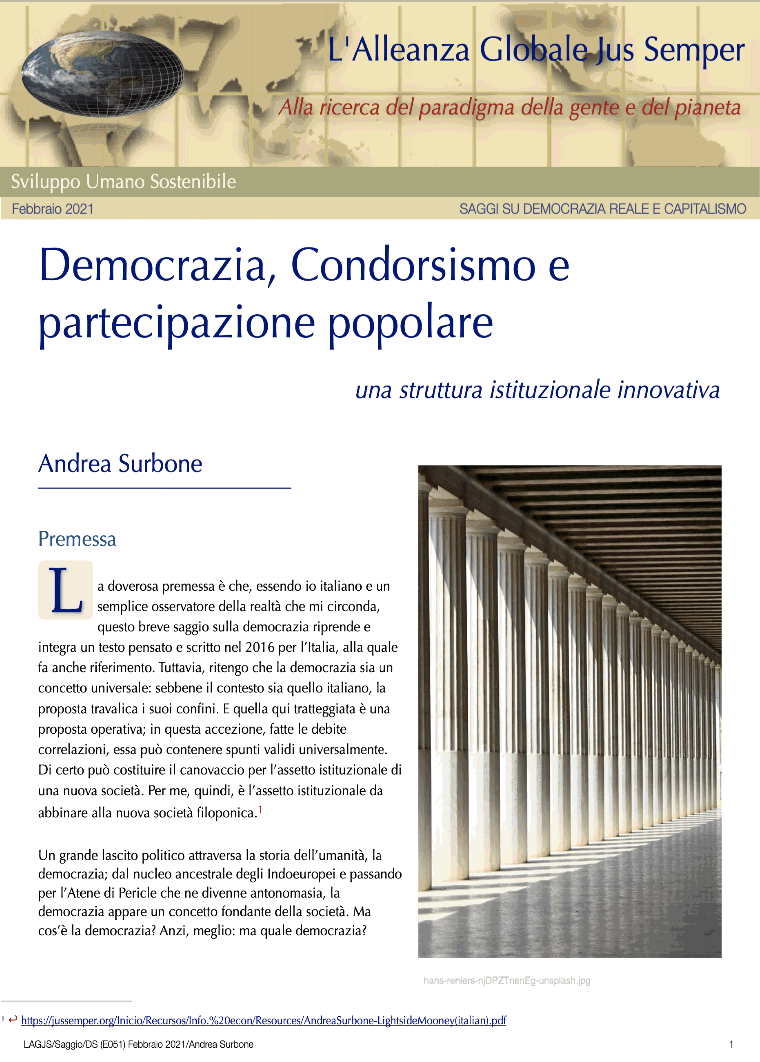an innovative institutional structure Andrea Surbone A great political legacy runs through the history of humankind: democracy. From the ancestral nucleus of the Indo-Europeans and through Pericles’ Athens, which became its hallmark, democracy appears as a founding concept of society. But what is democracy? Or rather, what democracy? Parting from the fact that the Anthropocene has pushed us beyond the limits of Mother Earth’s resilience, it is urgent to impose strict rules in order to curb the overflowing anthropic impact that is leading us towards an unknown that appears, alas, sadly known to us. It is in this context—the imposition of insuperable limits—that politics becomes fundamental. At first glance, the most appropriate political form to impose strict rules is certainly not a democracy; any form that allows for a more centralised power - from the direct election of the ‘leader’ to dictatorship, and the various other attributes of ‘-cracy’ - is easier than true democracy proper. My conviction, however, is that the new society must be established by deliberation, not by imposition. In this sense, it is democracy that these pages will deal with; trying also to overcome the dispute between representative and direct democracy. I advocate for the proportional system,3 considering it the maximum representation of elective democracy. For a full read of this brief, click here or on the picture to download the pdf file.
Clicca qui o sulla foto per scaricare il saggio completo in formato pdf.
|

- © The Jus Semper Global Alliance
| Home |  | Resources |  | Democracy Best Practices |  | Democracy, Condorcetism and Popular Participation |



